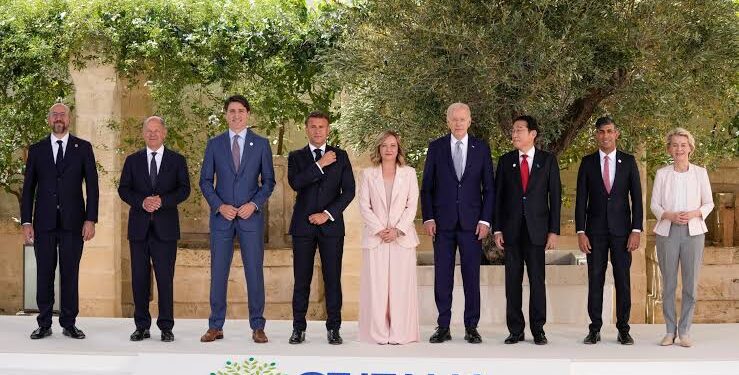The G7 is facing an unprecedented political crisis. In the last seven months, six of the seven leaders have resigned, lost elections, or faced no-confidence votes. German Chancellor Olaf Scholz lost a no-confidence vote. Canadian Prime Minister Justin Trudeau resigned. French President Emmanuel Macron’s government collapsed. U.S. President Joe Biden was voted out. Japanese Prime Minister Fumio Kishida stepped down. British Prime Minister Rishi Sunak lost in the elections.
Only Italian Prime Minister Giorgia Meloni remains in office. This sweeping change highlights deep instability within the world’s leading economies.
Growing Discontent Across Western Democracies
Voters are punishing the ruling elite. Economic hardships, rising inflation, and ongoing conflicts are driving public anger. Traditional center-left and center-right parties are losing their grip. In many cases, opposition parties with radical platforms are gaining traction.
Western democracies are struggling to maintain political balance. The loss of faith in leadership is pushing governments to the brink. Stability within these countries is weakening, leaving space for political fragmentation.
Far-Right Parties on the Rise
Far-right movements are gaining ground across Europe and North America. These parties are capitalizing on the discontent of middle-class voters. Economic struggles, job insecurity, and dissatisfaction with globalization fuel their support. In countries like France, Italy, and Germany, nationalist parties are rising in polls.
The collapse of traditional power blocs leaves an open playing field. Many far-right leaders are campaigning on platforms that promise economic protectionism and stronger borders. This appeals to voters tired of neoliberal policies and stagnant wages.
Economic Pressure and Public Backlash
The economic landscape worsened after the pandemic. Inflation surged while wages remained stagnant. Energy prices soared, and housing became unaffordable for many. Governments struggled to provide relief, causing frustration to grow.
Protests erupted across several G7 countries. Citizens demanded better living conditions and fairer economic policies. The lack of response from political leaders deepened distrust.
War Fatigue and Policy Failures
Public dissatisfaction with foreign policies also played a role. Endless wars and rising military budgets triggered criticism. Citizens grew weary of interventionist policies. Many blamed leaders for prioritizing global conflicts over domestic welfare.
Western governments face increasing pressure to shift focus. Voters want less foreign intervention and more investment in public services. Leaders who failed to recognize this shift paid the political price.
Uncertain Future for Global Governance
The political collapse within the G7 leaves global governance in question. Leadership vacuums create uncertainty in international relations. Countries outside the G7 are watching closely, as power dynamics shift.
Without strong leadership, addressing global challenges like climate change and economic inequality becomes harder. The current wave of political upheaval could reshape the global order. The next leaders face a critical task in restoring stability and trust.
Related Stories:
G7 Leaders Reaffirm Commitment to Syrian Political Transition and Accountability
Understanding the G7: Its Purpose and History
G7 Nations Pledge to End Unabated Coal Power by 2035
















